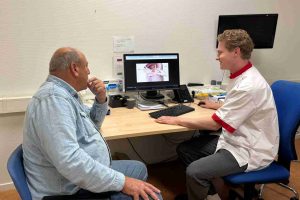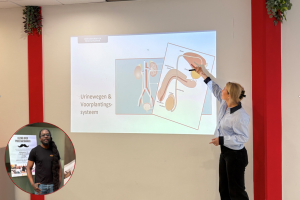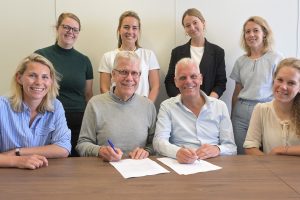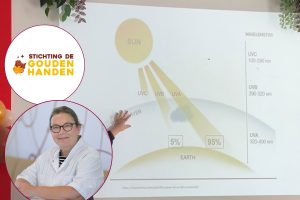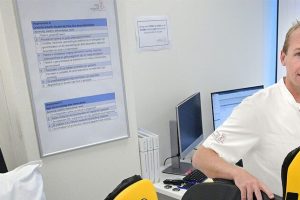The NKI Center for Early Diagnostics has initiated a collaboration with diagnostic center SALT to improve early detection of prostate cancer. Last week the NKI started offering prostate consultations at SALT in Zaandam. The goal of the collaboration is scientific research into a new, risk-weighted care pathway to better detect aggressive tumors and decrease diagnoses and treatment for low-grade prostate cancer. The study is financed by KWF Dutch Cancer Society.
The prostate consult is intended for men who have a PSA value of 3.0 ng/ml or more, who don’t experience symptoms (yet). The goal is to support general practitioners by accurately determining how high the odds of the presence of prostate cancer is in these patients. The prostate consultation offers general physicians more possibilities for early detection of prostate cancer, which prevents unnecessary, strenuous follow-up diagnostics at the hospital when possible.
The group of men who consult their physician without symptoms is expected to grow, as a new NHG standard for prostate cancer has come into effect recently. People can now make the decision to opt for early diagnostics for prostate cancer (PSA check) themselves, even in the absence of symptoms. And that is good news for early prostate cancer detection.
The prostate consultation
The consultation includes a sonogram of the prostate and a rectal toucher. The results of these examinations will be processed together with the PSA levels in the prediction model. The prostate consultation offers general physicians a risk assessment of (significant) prostate cancer in men over 50. In this collaboration, a patient is seen by SALT while their primary caretaker remains their own GP. The prostate consultation takes place at SALT, at De Vaart: Irene Vorrinkplein 40a in Zaandam.
High mortality prostate cancer
The importance of early detection becomes apparent in the facts and figures: in 2022, more than 3000 men in the Netherlands died of prostate cancer, making it the second highest cause of death among men in the Netherlands. Mortality is high because prostate cancer only causes symptoms after metastasis. This means that many men don’t see their GP until it is too late and treatment options are limited, decreasing survival. There is no population screening program in the Netherlands yet that could be used to promote early detection.
The number of prostate cancer diagnoses in the Netherlands has been climbing over the years. This increase is a result of an aging population and the increased life expectancy in men.
Effective early diagnostics
The prostate consultation can prevent more than half of prostate biopsies. Urologist Pim van Leeuwen explains: “Previous research into the implementation of this prostate assessment tool in a diagnostic center showed a potential reduction of 68% in the number of referrals. The assessment tool can be considered a potentially safe and patient-friendly strategy to lower the cost of care, wait times, and work pressure.”
Last row, left to right: Sanne Westerhout (Physician researcher NKI), Jeroen Lodder (Physician researcher NKI), Pim van Leeuwen (urologist NKI), Janine Voogd (SALT), Yvonne Prosper (SALTDerma). Front row: Christy Niemeijer (Director of SALT, general practitioner)


